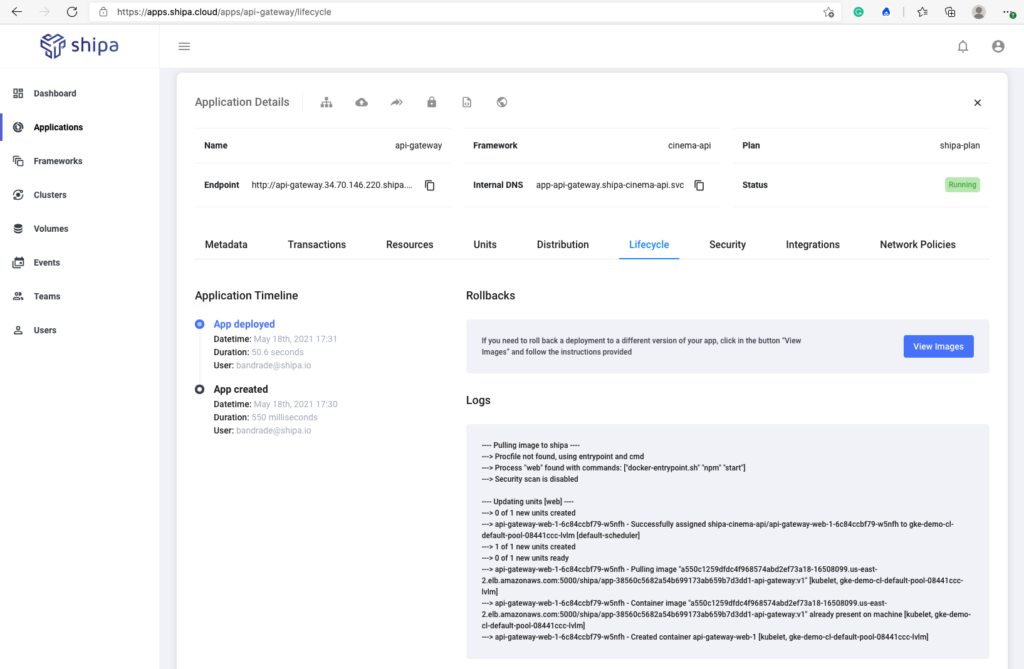Shipa Shifts App Management Platform for K8s to Cloud
Shipa Corp. today announces the general availability of a cloud edition of its application management platform for Kubernetes environments.
Bruno Andrade, Shipa CEO, says Shipa Cloud provides IT teams with an application life cycle management platform that they don’t have to deploy in addition to an existing on-premises edition. Rather than having to manage yet another DevOps platform, Andrade says Shipa Cloud enables organizations to devote more time and resources to application development and deployment.
That capability enables IT organizations to improve developer productivity without having to sacrifice governance and control, adds Andrade.
The Shipa platform enables IT teams to enforce policies at the application level. Because the Kubernetes governance model is based on individual objects, it’s challenging for IT teams to visualize and manage application environments. Shipa automatically creates all required Kubernetes objects and configuration files for an application and deploys them to all clusters required. It also provides canary and rollback management capabilities. All application objects are created, deployed and monitored automatically, with an audit trail automatically generated by the platform.
That approach also eliminates the need to create Kubernetes clusters using YAML files, develop custom scripts or employ an opinionated platform-as-a-service (PaaS) environment to abstract away the underlying complexity of the Kubernetes environment.
Shipa Cloud enables developers to work with an application without ever interacting with the infrastructure or even needing to know that Kubernetes is under the hood. Developers are provided with observability across all applications, statuses, objects, dependencies and network policies. Using a control plane hosted by Shipa, DevOps teams can then automatically enforce rules across every layer of the stack.
It also includes pre-built connections to a variety of existing management tools such as HashiCorp Vault, Datadog, JFrog, CircleCI, Traefik, Istio and others, as well as support for plug-ins that an IT team may decide to add.
Shipa Cloud is free for IT teams to use for two weeks, including audit reports, for an unlimited number of applications and Kubernetes clusters.
In effect, Shipa is making it simpler for IT organizations to embrace a Kubernetes platform that many find difficult to manage. As a result, not as many Kubernetes clusters are being rolled out as there might be, simply because they require too much expertise to manage. Shipa provides a layer of abstraction that serves to make Kubernetes more accessible to a broader range of IT professionals.
At the same time, other organizations are finding that managing fleets of complex Kubernetes clusters using YAML files is unsustainable across an extended enterprise, especially if it requires them to hire a site reliability engineer (SRE); those roles can be difficult to find and retain.
Kubernetes, of course, is designed to be a platform upon which other platforms are built. As more of those platforms become available, the need for rarefied Kubernetes skills will continue to decline. In fact, it may now only be a matter of time before Kubernetes simply becomes just another IT platform among many that IT administrators manage. In the meantime, however, it will always be important to at least understand how that platform functions in the event an issue arises that can’t be automatically remediated.



